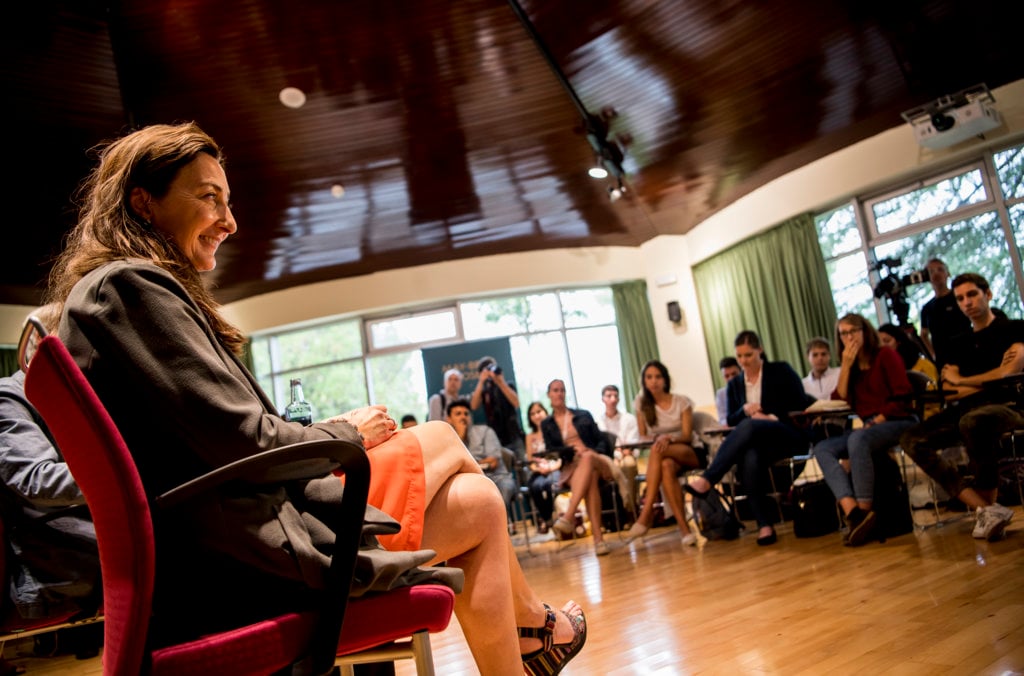Throughout life we all rely on mentors to train us and guide us. It is a subject which many Nobel Laureates speak passionately about, pointing to individuals who encouraged them and shaped the way they think about science. As mentors themselves, they offer guidance in many ways, whether this is supporting young people in their labs or taking part in programmes such as the Nobel Prize Inspiration Initiative. Here are some insights which laureates have shared about their roles as mentors and the people who guided them.
Sir Fraser Stoddart
Fraser Stoddart spent the first 17 years of his life on a farm with no electricity, and began his education at a school of just five children. He still remembers the mentors from these early days, including his first teacher. His time with Miss Morrison was a positive experience, despite her use of the leather strap as a punishment, and he credits her with giving him the knowledge he needed to be accepted into a school in Edinburgh.
His first experience of mentorship in academic science, however, was the opposite of what he had hoped for. He trained under a professor who was resentful of anything young people achieved, and this unpleasant experience stuck with him. Over the 50 years of his career, he has mentored over 500 young scientists from 50 countries, always ensuring he gives them the encouragement he lacked.
Read more about Fraser Stoddart
Roger Kornberg
Roger Kornberg had very different early influences to Fraser Stoddart – his father, Arthur Kornberg, was awarded the 1959 Nobel Prize in Physiology or Medicine and his mother too was a biochemist. Now, like Stoddart, he greatly values his relationships with young scientists in his lab. Rather than offering guidance to his students, he seeks to share with them as ‘equals pursuing the solution of a problem’.
Mentors come in many forms, and Kornberg highlights the value of learning from your contemporaries. Just as Fraser Stoddart recommends that students should learn from outstanding young scientists in the lab, Kornberg speaks of the value of observing how others tackle a problem.
Read more about Roger Kornberg
May-Britt Moser
Following the award of the Nobel Prize, many laureates become role models for young people. May-Britt Moser has certainly been an inspiration to young scientists, and hopes to encourage people from all backgrounds to work in research. Her outlook is that everyone can make valuable contributions to science, whatever their gender, race or culture.
“We need all kinds of people doing science”
She experienced that early encouragement herself. At school she had teachers who believed in her, in particular a physics teacher who encouraged his female students by telling them to come back and show him that they had become engineers. She also appreciates the effort of all the women who have gone before her and created a more equal world.

May-Britt Moser offered encouragement and advice to young scientists during a Nobel Prize Inspiration Initiative event in Spain, held in partnership with AstraZeneca
© Nobel Media. Photo: Alexander Mahmoud
Read more about May-Britt Moser
Michael Brown
Two talented scientists who built a partnership during their time as students are Michael Brown and Joseph Goldstein. Well over four decades later, they are still working together and learning from each other.
As a young research fellow, Michael Brown made an observation that was revolutionary for the lab. His mentor made him ‘jump through a million hoops’ to prove what he had discovered. The encouragement to design as many experiments as possible to try and disprove his hypothesis provided great inspiration, demonstrating the importance of integrity in the desire to discover the truth.
This kind of rigour is something he advises scientists to look for in a mentor: “If you train with someone who is a sloppy scientist, you’ll be a sloppy scientist.”
Brown now advocates looking for a mentor who is at the cutting edge of their field, looking ahead to the important questions of the future.
Peter Doherty
Peter Doherty never had a famous mentor who set him on his scientific path. In fact, he is glad he didn’t follow someone who saw him as the product (or continuation) of their own programme. Instead, he has marched ‘to the beat of his own drum’ and led a highly unconventional research career.
He does, however, stress the importance of mentorship. He sees mentors as being responsible for the wellbeing of their students, while at the same time challenging them. A mentor’s role isn’t to hand students everything on a plate; it is help them grow intellectually.